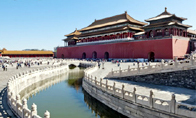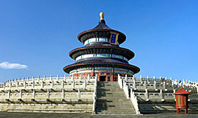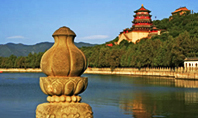
On the afternoon of November 17th, Foreign Ministry Spokesman Liu Jianchao held a regular press conference.
Liu Jianchao: Good afternoon, everybody. First of all, I will extend warm welcome to the diplomats from Bosnia and Herzegovina who attend our press conference and wish them a happy stay in China.
I would like to begin with an announcement:
At the invitation of the Pakistani Government, Vice Foreign Minister Wu Dawei will head a delegation of the Chinese Government to attend the international conference on Pakistan's post-disaster reconstruction to be held in Islamabad on November 19. The delegation will be composed of senior officials from the Foreign Ministry, Ministry of Commerce and the State Seismology Bureau.
Attaching great importance to the post-disaster reconstruction, the Chinese Government will continue to take effective measures to support Pakistan based on the already delivered emergency assistance. We hope and believe that the international community will also make vigorous and concrete actions to help the Pakistani Government and people in their reconstruction.
At last press conference, a Spanish journalist asked me a question about the so-called"prison" to be built for HIV patients in China, which I didn't have information at hands at that time. Afterwards I referred your question to relevant departments and got information as follows:
China has no plan to build such special prisons. In order to offer special care and assistance and provide better medical service and health conditions to criminals who carry HIV or have become AIDS patients, China will add relevant medical equipment and facilities in current prisons and give free examination and treatment to these HIV carriers and AIDS patients. It also displays the Chinese Government's concrete actions to offer the humanitarian care to these people.
Now I'm ready to take up your questions.
Q: Can you introduce detailed agenda of President Bush's visit to China? Will he deliver a speech at some Chinese university? Yesterday President Bush delivered a speech in Tokyo. China's Foreign Minister Li Zhaoxing has already commented on Bush's remarks related to China. What response does the Chinese Government have on Bush's remarks related to China?
A: Welcome back to our press conference after your long "absence". At the invitation of President Hu Jintao, President Bush will pay a visit to China from November 19th to 21st. During President Bush's visit, President Hu Jintao will hold talks with him, and Premier Wen Jiabao will meet with him. The visit is not long with a tight schedule. As for specific agenda and arrangements, we will brief you in due course.
As for your second question, China insists on pursuing the road of peaceful development. China has gained world-renowned achievements in human rights. The Chinese people fully enjoy democracy and freedom in all aspects, including the freedom of religious belief. All countries should conduct exchanges and dialogues on human rights on the basis of the principle of equality, mutual respect and non-interference into each other's internal affairs. Through President Bush's upcoming visit to China, we hope to expand common grounds, enhance mutual trust and strengthen exchanges and cooperation with the US, thus promoting China-US constructive and cooperative relations in the 21st century on all fronts.

Q: In his speech at APEC meeting this morning, former "Premier" of Taiwan Lin Xinyi said that Taiwan was an independent sovereign state. What reaction do you have on his remarks?
A: As for Taiwan's status at the APEC meeting, APEC has already reached a memorandum of understanding. We hope all parties concerned will abide by the principle of the memorandum. The remarks that "Taiwan is a sovereign state" have no legal grounds. It is known to all that there is but one China in the world, and Taiwan is an inalienable part of China's territory. The People's Republic of China is the sole legal government representing the whole China. It is a fact recognized by the overwhelming majority of countries in the world, and championed by the UN member states in their large numbers. Such remarks as "Taiwan is an independent sovereign state" are made either due to ignorance or political motivation. We resolutely oppose such remarks.
Q: What impact will President Bush's visit to China have on China-US relations? Will the situation of South Asia security be touched upon? How will this visit influence on the improvement of South Asia situation? Is the mutual understanding between India and Pakistan help resolve India-Pakistan conflict and the South Asia issue? What common ground do China and Pakistan share on anti-terrorism?
A: During President Bush's visit to China, China and the US will make an in-depth exchange of views on a wide range of issues, including international and regional issues. I can not predict whether the meeting will touch upon the South Asia situation. I believe that both China and the US hope that the situation in South Asia will maintain the momentum of improvement. We have always appreciated Pakistan's strong cooperation with the international community on anti-terrorism. And we hope that Pakistan will continue its role in this regard and China-Pakistan anti-terrorist cooperation can be further strengthened.
Q: US Attorney General Alberto Gonzales will hold talks with Chinese Minister of Public Security tomorrow. Can you brief us on the agenda? Do you think Bush's speech in Tokyo constructive to China-US relations?
A: Regarding your first question, at the invitation of State Councilor and Minister of Public Security Zhou Yongkang, US Attorney General Alberto Gonzales will visit China on November 17 to 19. During his visit, Chinese state leaders will meet with his delegation and Zhou Yongkang will hold bilateral talks with him. In addition, the principal officials of the Supreme People's Procuratorate and Ministry of Justice will meet with the US delegation. During the talks and meetings, the two sides will exchange views on such issues as combating cross-border crime, anti-terrorism and enhancing law enforcement cooperation.
Q: Last night, the Ministry of Health announced 3 bird blu cases first and then changed to 2 cases plus one suspected case. Do you have any updates on the bird flu? It is reported that China now has found 300 bird flu cases and human-to-human infection.
A: The Chinese Government has taken a highly responsible attitude towards treatment and prevention of bird flu. We have made clear disclosure to the public. Chinese Ministry of Health announced at 10 o'clock last night 2 mainland cases of human infection of highly pathogenic avian flu H5N1, and meanwhile made explanation on the so-called third case you mentioned. This announcement has explicitly accounted for the two cases and some issues of public misgivings. We should take this issue with a scientific attitude, instead of making speculations under the sway of emotion. The 300 cases in China as word has it is nothing else than a groundless tale, of which the WHO will not approve either. It is also said human-to-human infection has been found. This again shows ignorance of science. Up to this stage, the WHO claims no evidence in the world reveals human-to-human infection of bird flu virus.
Follow-up: Will you say China did not cover up anything on the bird flu issue?
A: On the bird flu issue and any other large-scale epidemic, the Chinese Government consistently takes a highly responsible attitude. We have nothing to cover up and need not to do so.
Q: A question on President Bush's visit. International trade will be a very important topic on the agenda, and the US expects China to dampen its international trade. Does the Chinese Government deem international trade an international issue or domestic one?
A: The answer to your question is simple and clear. On the whole, international trade refers to trade activities between countries, and certainly does not exclusively fall within a country's domestic affairs. I think you were talking about trade frictions between China and the US. This is our bilateral issues, and I believe our two sides can resolve it properly through dialogue on the basis of mutual benefit and respect.
If there are no more questions, the press conference is over. Thank you!




